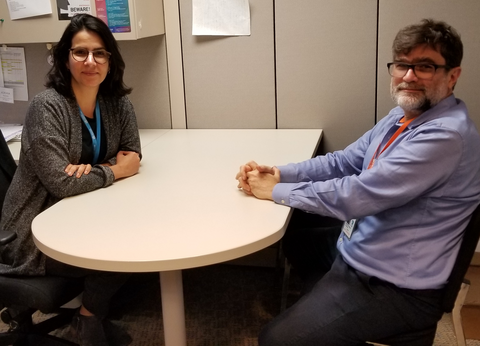PAHO/WHO Collaborating Centre Spotlight Series
Reference Number: BRA-54
Official Title: Secretaria Executiva da Comissão Nacional para Implementação da Convenção-Quadro para o Controle do Tabaco
Institution: Instituto Nacional de Câncer José Alencar Gomes da Silva (INCA)
Reference Number: USA-164*
Official Title: PAHO/WHO CC for Global Tobacco Surveillance
Institution: Global Tobacco Program, Office on Smoking & Health, Centers for Disease Control and Prevention (CDC)
Reference Number: USA-307
Official Title: PAHO/WHO CC on Tobacco Control Surveillance and Evaluation
Institution: Department of Epidemiology, Institute for Global Tobacco Control (IGTC), Bloomberg School of Public Health, Johns Hopkins University
Reference Number: USA-302
Official Title: PAHO/WHO CC on Tobacco Control Policy Development
Institution: Center for Tobacco Control Research and Education, UCSF Cardiovascular Research Institute, School of Medicine, University of California
Category 2 (SP 14-19)
Outcome 13, 21 (SP 20-25)
Ms. Adriana Bacelar Gomes, Specialist, Tobacco Surveillance, and Dr. Francisco Armada, Advisor, Tobacco Control, are the PAHO staff members who acts as the Region’s focal point to coordinate the collaboration between the institution and the Organization.
The main activities of these Centres include: (1) translating technical documents into Portuguese; (2) producing technical references and evidence related to tobacco control; (3) offering training for leaders in the tobacco control; (4) supporting the implementation and analysis of the surveys; (5) implementing workshops; (6) supporting research in the economics of tobacco control; and (7) carrying out research on the tobacco industry’s interference.
The Centre at the Secretaria Executiva da Comissão Nacional para Implementação da Convenção-Quadro para o Controle do Tabaco (CONICQ) translated the WHO Framework Convention on Tobacco Control (FCTC) documents into Portuguese for internal use and disseminated the translated materials to Portuguese speaking countries. The Centre also produced technical references related to FCTC Articles 17 and 18 and provided training to 20-30 individuals from the Region focused on tobacco control (surveillance, policies, FCTC, tobacco cessation, treatment for tobacco use, etc.).
The Centre at CDC provides technical support for the implementation and data analysis of the Global Youth Tobacco Survey (GYTS) in the Region. Since 1999, the survey has been implemented in countries in the Region at least every five years and is going into the fifth round of the survey. The Centre also supports the implementation of the Global Adult Tobacco Survey (GATS). After data has been collected, the Centre provides on-site Data to Action training to support the countries in using the data to develop policy briefs. In February 2019, this on-site workshop was offered in Uruguay with participants from Argentina, Costa Rica, Guyana, Mexico, Panama, and Uruguay invited.
The Centre at the Institute for Global Tobacco Control holds a week-long leadership training developed with PAHO focused on tobacco control. The training is targeted to participants from government and civil society organizations within the Region and afterwards, additional training workshops are available. The Centre also supports research in several areas of tobacco control including legislation, warnings, use of novel products, and industry strategies. This helps to strengthen tobacco control and counteract tobacco industry interference. The Centre’s research is disseminated in various ways including publications in academic journals.
The Center at the UCSF Cardiovascular Research Institute also has a role in research on tobacco industry interference and contributes in the analysis of the tobacco industry documents. Although this Centre has many projects that are outside the Region, their research is also useful within the Region.
Webnotes such as these serve to inform how Collaborating Centres are contributing to the Organization’s priorities and mandates.
*CC expired.


